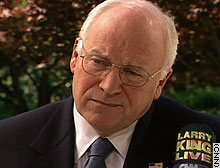Rep. Barney Frank (D-Massachusetts) was on NBC's
"Today Show" criticizing the reports of AIG paying out huge bonuses and diverting tax-payer bailout funds to other investments rather than shoring up their financial infrastructure and helping to stabilize the nation's devastated financial system.
Mr. Frank makes the point of insisting that the shenanigans began with the Federal Reserve's unilateral Sept. 15 emergency $80 billion dollar bailout loan to AIG:
"People should note that this one did not come out of the Treasury initially, this was a Federal Reserve decision...this decision to give billions, 80 billion intitially to AIG...actually came before Congress passed the rescue plan."
But the fact is that billions more tax-payer dollars have been dumped into AIG from money provided in the $700 billion rescue plan that Congress
passed in Fall 2008.
On November 11, 2008, CBS News
reported a new aid package to AIG from :
The new AIG package includes a $40 billion chunk of the $700 billion financial bailout. It's the first time money from the big rescue bill has gone to any company other than a bank.
CNN later reported on March 3 that:
"The revamped rescue plan -- now totaling $162.5 billion -- commits another $30 billion to AIG. The payment will come from the second half of the $700 billion rescue package enacted last fall."
Clearly, Rep. Frank, along with his Democratic allies, is attempting to wash his hands clean of the weak and ineffective financial plan passed in October.
What's interesting is that Rep. Frank was one of the most powerful voices behind supporting then-Treasury Secretary Henry Paulson's financial bailout blueprint, along with other powerful Democrats. Let's go
back to September,22 2008:
"Key Democrats in Congress, backed by party presidential nominee Sen. Barack Obama on the campaign trail, made it clear Sunday that their support for the rescue blueprint offered by Treasury Secretary Henry M. Paulson Jr. comes with a price.
House Speaker Nancy Pelosi, California Democrat, vowed late Sunday to push for an independent oversight board for the Treasury bailout effort, as well as protections for homeowners facing foreclosure and new restrictions on lucrative Wall Street executive salaries, both of which Mr. Paulson has opposed.
"We will not simply hand over a $700 billion blank check to Wall Street and hope for a better outcome," Mrs. Pelosi said.
Barney Frank weighed in:
"Secretary Paulson and I have a lot of agreement, but we have a difference of opinion on what's clean," Mr. Frank said on CBS' "Face the Nation."
Mr. Frank echoed Mrs. Pelosi, saying he would be looking to add provisions limiting compensation for executives in failed banks and other financial firms that receive taxpayer aid. Democrats say they will redouble efforts to pass a $100 billion economic stimulus bill targeting Main Street.
"I don't think that dirties up the bill," Mr. Frank said.
As a powerful House Chairman of the House Financial Services Committee, did Frank ensure that the bill was
clean? Did he fight for a stronger measure? Did he use his influence to ensure that tax-payer funds were protected in this bailouts? Did he express reservations when the bill was passed that maybe, just maybe it was as bad as most Republicans and some Democrats, for various reasons, said it was?
Let's go to Sept. 29, 2008, when the initial bailout plan was
rejected due to Republican opposition and Democratic defections.
Mr. Frank opened the day with this dire warning, which is the culmination of all the fear-mongering he and his Senate counterpart Sen. Chris Dodd (D-Connecticut) had propagated for the past few weeks:
"Today is the decision day. If we defeat this bill today, it will be a very bad day for the financial sector of the American economy."
Absolutely not. Watching him on TV castigating bailout abusers who are doing exactly what he could have prevented had he and his committee crafted a tougher bill strikes me as one of the worst kinds of hypocrisy.
It's clear that Mr. Frank was one of the bill's biggest cheerleaders.
In Frank's interview on the Today Show, he bemoans:
"These people may have a right to their bonuses. They don't have a right to their jobs forever," said Frank, a Massachusetts Democrat who is chairman of the House Financial Services Committee.
Actually, Mr. Frank, they do have a right do their jobs forever. That's called private enterprise. But because he as a Congressman doesn't have term limits, it's unfortunate that he actually get to keep his job forever.
And that's almost as shameful as his false indignity.
I will leave the last word to Rep. Lloyd Doggett (D-Texas), who described the initial bailout plan in the following terms:
"Like the Iraq war and Patriot Act, this bill is fueled by fear and haste."






